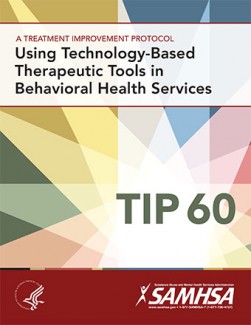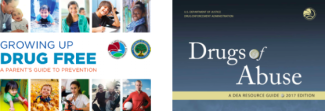The relationship between mental health disorders and substance use and integrated approaches.
Mental Health
Extent and Patterns of Drug Use among Persons with Disabilities in Kenya
Abstract Background: Although some data existed suggesting that there was high prevalence of drug use among the general population in Kenya with 39-48% of 15-65 year olds having used alcohol and at least one other substance, there was a...
Using Technology-Based Therapeutic Tools in Behavioural Health Services
For anyone interested in digital health behaviour interventions this manual from SAMHSA will prove interesting. Exploring how technology-assisted care can be implemented, the value of technology based assessments and the ways in which the...

Adolescent Executive Dysfunction in Daily Life: Relationships to Risks, Brain Structure and Substance Use
During adolescence, problems reflecting cognitive, behavioral and affective dysregulation, such as inattention and emotional dyscontrol, have been observed to be associated with substance use disorder (SUD) risks and outcomes. Prior studies...
Cannabis and Psychosis: Neurobiology
ABSTRACT Cannabis is a known risk factor for schizophrenia, although the exact neurobiological process through which the effects on psychosis occur is not well-understood. In this review, we attempt to develop and discuss a possible pathway...
Childhood Emotional Maltreatment and Mental Disorders
Abstract Child maltreatment is a public health concern with well-established sequelae. However, compared to research on physical and sexual abuse, far less is known about the long-term impact of emotional maltreatment on mental health. The...
Adapting, Pilot Testing and Evaluating the Kick.it App to Support Smoking Cessation for Smokers with Severe Mental Illness
Abstract Background: While the prevalence of tobacco smoking in the general population has declined, it remains exceptionally high for smokers with severe mental illness (SMI), despite significant public health measures. This project aims...
Neurobiology of Addictions / Neurobiología de las adicciones
ABSTRACT The proportion of drug abuse users that develop dependence does not represent the totality of users. Therefore, there is a substantial proportion of users that do not develop a substance use disorder (SUD). For example, in Mexico...
Gender Differences in Substance Use and Psychiatric Distress among Medical Students
ABSTRACT Background: Medical student wellness has emerged as an important issue in medical education. The purpose of the present study was to obtain a comprehensive assessment of substance use, psychological distress, and help-seeking among...
Most-Read Knowledge Share Articles of 2017
Here is a selection of the most-read Knowledge Share articles of 2017. These are the articles that captivated our members most.

Substance Abuse Librarians and Information Specialists (SALIS) Conference
In honor of SALIS's 40th birthday, the 2018 SALIS & AMHL Conference is being held in Berkeley, California. The conference will feature informative presentations, educational posters, and committee meetings